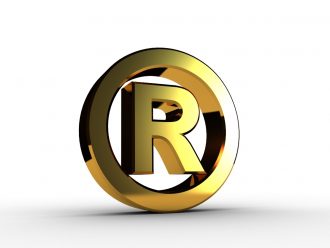
June 21, 2016
Filing of Cancellation Prior to Registration’s Fifth Anniversary Allows Later Addition of Otherwise Time-Barred Non-use Claim
Harness the Lesson: When bringing or defending an opposition or cancellation before the TTAB, be aware of whether or not the involved registrations are less than five years old and what impact that may have on the available claims or counterclaims. If the five year date is approaching, it may make sense to ensure your cancellation is filed prior to that date so that you can add certain types of claims later based on discovery. Similarly, if the registrations you plan to rely on are approaching the five year date, it could be beneficial to delay your opposition or cancellation until after the five years expires so that your registrations are not vulnerable to certain counterclaims. Always check the date by which an applicant must have started using the mark before challenging the use of the mark, as it may not be the application’s filing date or the statement of use filing date. Ashland Licensing & Intellectual Property LLC (“Ashland”) petitioned on June 6, 2013, to cancel two registrations owned by Sunpoint International Group USA Corp. (“Sunpoint”). Following discovery, Ashland moved to amend to add a claim that the registrations were void due to non-use at the times the applications and statements of use were filed.
Ashland
Sunpoint’s registrations issued on June 17 and June 24, 2008, meaning Ashland’s petition for cancellation was filed just prior to the registrations’ fifth anniversary. Section 14 of the U.S. Trademark Act allows for the filing of a cancellation against a registration, but limits the grounds on which the cancellation can be brought if it is not filed within five years of the registration’s issuance. 15 U.S.C. §1064. While Ashland’s petition to cancel the registrations was filed within the five years from issuance, its motion to amend to add the non-use claim was not. Ordinarily, the non-use claim would be time-barred after the five years from issuance had passed.
In a precedential decision, the Trademark Trial and Appeal Board (“TTAB”) ruled that the filing of the cancellation within the five year period tolled the time-based limitation of Section 14. The TTAB relied on a 1966 Court of Customs and Patent Appeals (“CCPA”) case where the CCPA allowed a counterclaim, that would normally have been time-barred, to be brought after the five year period because the opposition had been filed within the five years. See The Williamson-Dickie Mfg. Co. v. Mann Overall Co., 149 USPQ 518 (CCPA 1966).
While the TTAB did not bar the addition of the non-use claim, it did point out that the registrations issued from applications filed based on an intent-to-use. Therefore, the relevant inquiry was whether Sunpoint had used the marks by the statement of use filing dates or within the extended periods in which the statements of use could have been filed. Accordingly, Ashland was granted leave to amend to re-plead a proper non-use claim.
Case: Ashland Licensing & Intellectual Property LLC v. Sunpoint International Group USA Corp., Cancellation No. 92057294 (TTAB June 7, 2016).

































